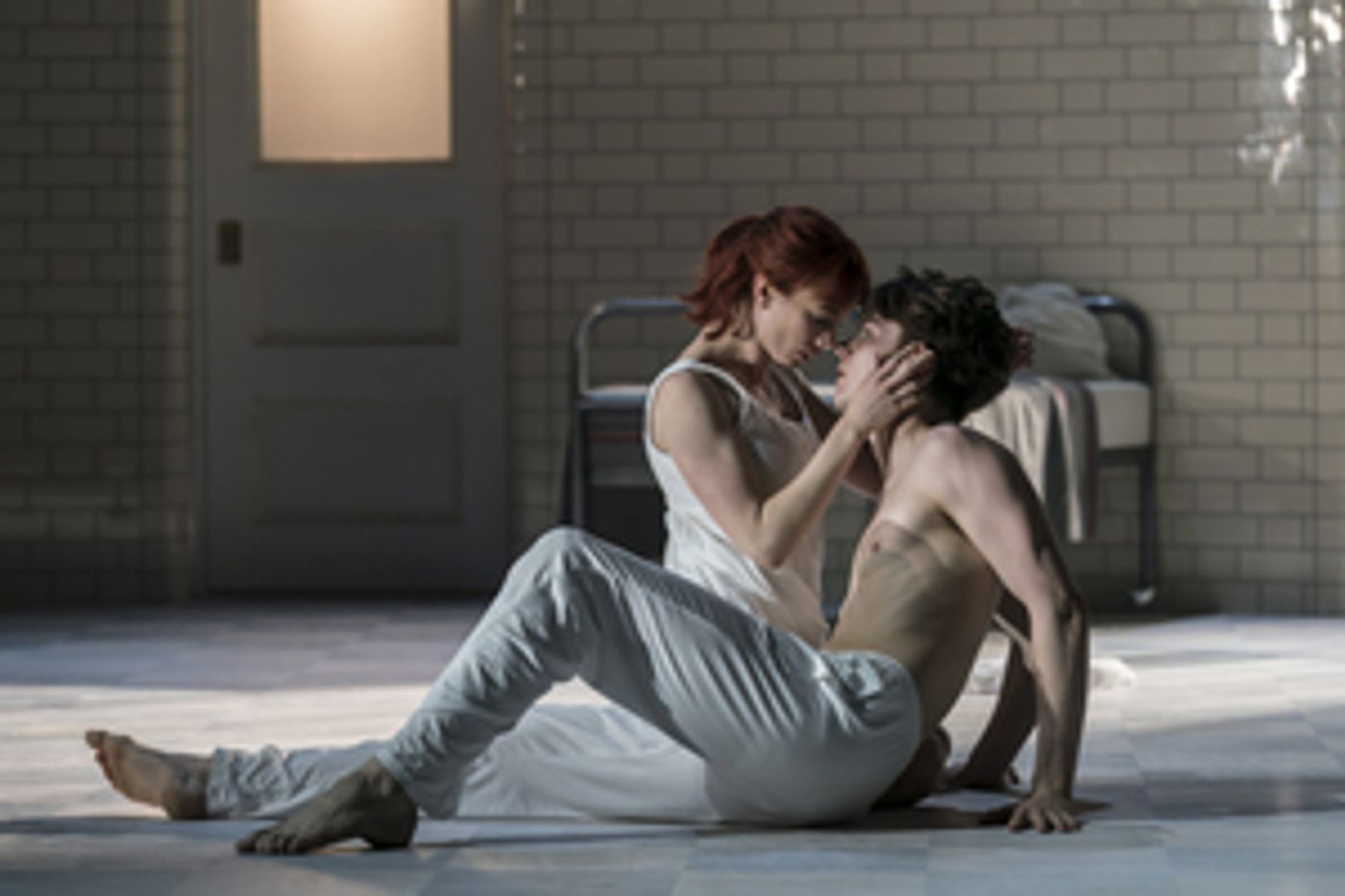Review: MATTHEW BOURNE'S ROMEO AND JULIET, Sky Arts

![]() You may have thought you'd encountered every possible version of Shakespeare's tragedy of Romeo and Juliet and yet the masterful Matthew Bourne manages to surprise you anew. Set in the sterile white of Verona Institute, where the young are forced into submission, this is the story as you've never seen it before.
You may have thought you'd encountered every possible version of Shakespeare's tragedy of Romeo and Juliet and yet the masterful Matthew Bourne manages to surprise you anew. Set in the sterile white of Verona Institute, where the young are forced into submission, this is the story as you've never seen it before.
Filmed in 2019 at London's Sadler's Wells, the production was shown on Sky Arts as part of the REEL Adventures series being screened during the current pandemic. As part of Matthew Bourne's New Adventures initiative that searches for and support the next generation of dancers, the production features emerging dancers from around the UK, with little or no dancing experience.
It is not absolutely clear why the young inmates are incarcerated in the institute, but the setting brings new resonance to the opening Dance of the Knights, where the cast performs a staccato routine with clenched fists and sudden jumps and lunges. It feels urgent and visceral.
Tybalt is now a threatening guard, with unwelcome designs on the young Juliet. There is a blatant suggestion of violent, sexual assault which is moved away from too quickly. This seems a lazy dramatic arc for Bourne to throw in so carelessly and without further exploration.
Romeo appears as a visitor to the institute, accompanying his parents in a series of nervous-looking twitches and jumps. He is quickly stripped down to become a member of the institution himself.
This is not a story of warring families, but of the young repressed by their elders and joining together to cope. Romeo and Juliet's love is no longer hidden, but celebrated by their peers. At the institute, they are all united in their responsibility for Tybalt's death, joining together to pull at the belt fixed around his neck - even though Romeo alone takes the blame.
The ball scene begins as an incredibly awkward dance for the inmates, who feign to show little interest in each other for fear of recriminations from the ever-present guards. Under cover of semi-darkness, the couples quickly writhe, sliver and curve around each other, like a classical Dirty Dancing. Romeo and Juliet's meeting begins under the glitterball, as they stand static, enraptured by each other. When they sneak out later, their dancing very quickly becomes fluid, joyful and charged with sexual chemistry.
Cordelia Braithwaite is a spirited Juliet, with an obvious intelligence and enthusiasm for life. Paris Fitzpatrick gives Romeo a lightness and dreamlike quality. Their first kiss is breathless, hopeful and bursting with youthful joy. His descent into tortuous, angular movements after Tybalt's death are heartfelt and deeply moving.
Dan Wright is a vindictive and bullying Tybalt. More unstable than the inmates he guards, Wright is convincing as a seething mass of rage and violence who enjoys brutalising his prey. The young cast as a whole is vibrant and engaged, with beautiful fluidity and co-ordination in their movement.
Lez Brotherston's stark, white-tiled set looks suitably sterile and clinical, while foreboding wired gates enclose the set. Paule Constable's lighting complements this very well, with pockets of overly bright light and dark, forbidding corners.
Terry Davies's reconfiguring of Prokofiev's score is both familiar and also inventive. It's a very stripped-back version of the score, which lacks some of the urgent soaring of the original, but nevertheless serves well on the dramatic stakes.
Ross MacGibbon's direction for the screen is thoughtful and allows the action to lead. Often there is a sense of missing out by not being present at the live performance, but that is not the case here.
This is a compelling production, with some beautiful performances, but not everything works. There is little sense of camaraderie with Romeo's original friends, Mercutio and Benvolio, and so the death of Mercutio lacks any real resonance.
The final, tragic ending is also dampened by the new conclusion where the tormented Juliet suffers a mental breakdown, which leads her to stab both herself and Romeo. Although beautifully executed by the lead dancers, the more traditional tragedy of the warring families, accidentally mixed-up messages and the ultimate price for love feels a little diminished.
However, for a story that has been performed in every manner possible, this is a truly fresh and surprising take that absorbs you throughout.
Matthew Bourne's The Car Man will be broadcast on 3 May on Sky Arts
Photo Credit: Johan Persson
Reader Reviews

Videos

